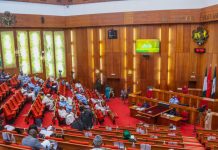Trump Signs Travel Ban on 12 Countries, Citing National Security
Former U.S. President and Republican presidential candidate Donald Trump has signed a new travel ban restricting entry into the United States from 12 countries, including Afghanistan, Haiti, and Iran, in what he described as an effort to “protect Americans from dangerous foreign actors.”
The executive proclamation, which is set to take effect on June 9, also imposes partial restrictions on nationals from seven other countries, including Cuba and Venezuela. According to the statement, the measures are intended to prevent potential threats from entering the U.S. while allowing for limited exceptions.
Among those exempt from the travel ban are athletes participating in international competitions, certain Afghan nationals, and dual nationals with citizenship from countries not affected by the order.
The move mirrors a controversial policy from Trump’s first term in 2017, which barred entry to citizens from several Muslim-majority nations and was widely criticized as a “Muslim ban.” That policy sparked a series of legal battles before the U.S. Supreme Court upheld a revised version in 2018.
This latest proclamation is part of Trump’s 2024 election campaign promises and is expected to face swift legal challenges from civil rights groups, immigration advocates, and Democratic lawmakers.
Critics argue that the travel restrictions unfairly target vulnerable populations and risk damaging diplomatic relations. However, Trump and his supporters maintain that the ban is a necessary step to ensure national security and preserve public safety.
As of now, the full list of countries affected by the ban and partial restrictions has not been officially released by U.S. authorities.


























